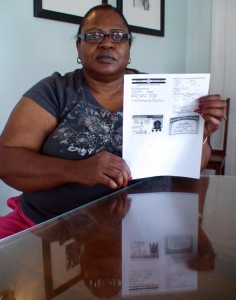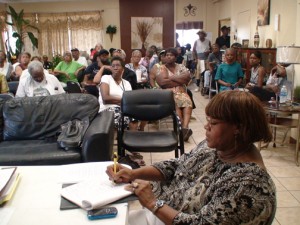As state works to satisfy DOJ’s questions, SC Progressive Network will continue to educate and mobilize SC voters
By Becci Robbins
SC Progressive Network Communication Director
The US Dept. of Justice denied approval of South Carolina’s new voter ID law on Aug. 29, giving the state another 60 days to make its case. As required by the Civil Rights Act, DOJ has been reviewing the law to ensure that it does not abridge the rights of minority voters.
In its ruling, DOJ asked the state eight questions about procedures on obtaining photo voter registration cards, funding for voter education and poll worker training, and the process for casting provisional ballots when a voter has no photo ID.
The SC Progressive Network filed voter affidavits and comments with DOJ, highlighting the burdens posed on rural, poor and minority voters, and the likelihood of the law’s unequal enforcement.
DOJ raised many of the concerns the Network has about how the state will work around the burden posed by voters needing a birth certificate to get the required DMV ID card. The final version of the bill included a provision that a registered voter could obtain a photo voter registration card – pending funding – that would serve as acceptable ID without mandating a birth certificate. One camera for each county office has been funded for this purpose. The cards will be made in Columbia and mailed to voters.
In an Aug. 25 submission to DOJ, the state filed draft procedures for issuing photo voter registration cards. The plan entails issuing paper voter registration cards that a voter cannot vote with unless they have the DMV photo ID. If they don’t have the required photo ID, they must go to their county voter registration office and trade in their paper registration card for a “temporary voter registration card with a photo” that is good for 30 days. Permanent photo voter registration cards with photos will be printed by the state election office and mailed to voters.
Not only is the process burdensome to voters and election workers, it is inadequately funded. In June, $1.4 million was appropriated to cover everything from buying the cameras to mailing notices to the estimated 200,000 registered SC voters with no photo ID, to educating the public and poll workers on the new law.
As confusion and costs over the ID law mount, we should remember that no one has ever been caught impersonating another voter at the polls in SC, the sort of fraud this law was designed to prevent. Rather than protecting the sanctity of the vote, as proponents claim, the new requirement does nothing but make it harder to vote in South Carolina. For some voters, the burden will be too high.
While the state digs itself deeper into a hole of its own making, the Progressive Network will continue to educate voters and expand an organized coalition of citizens to fight this and other laws compromising voting rights in South Carolina.


